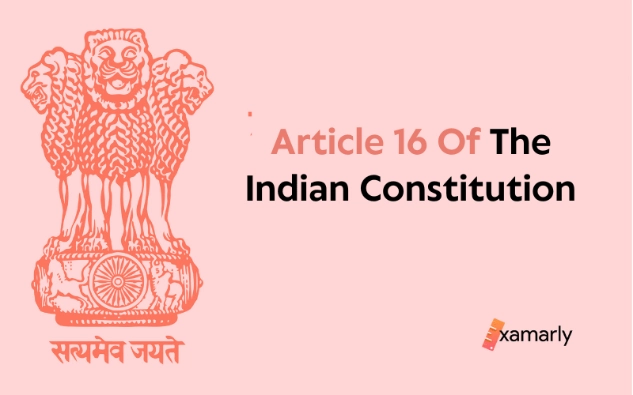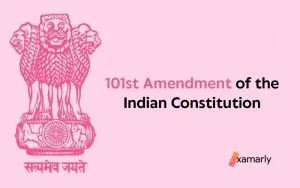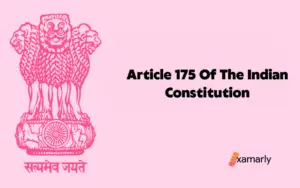One of the most significant fundamental liberties protected by Part III of our Constitution is the right to equality of opportunity. This right, which spans Articles 14 to 18, aspires to level the playing field for all people while eradicating all biases and grounds of discrimination. Every class of citizen must be treated equally in various matters of employment processes in order to achieve a true sense of justice, and those who are less fortunate must be given the chance to advance and flourish in the field of public work. Article 16 of the Indian Constitution guarantees this. It is one of the fundamental rights given to Indian citizens.
We shall examine the purpose and components of article 16. Additionally, we shall examine the admissions and policy of reservation in promotions.
What Is Article 16 Of The Indian Constitution?
Article 16 talks about the equality of opportunities in the area of public employment. Equal opportunities is a highly individualized concept, and various jurists have assigned it various interpretations.
This term not only talks about removing discrimination but also puts an obligation on the state to create opportunities for the weaker section of society.
Through positive action, the state is given the authority to create opportunities. To achieve social fairness, affirmative action is a tool. In this measure, the state offers some benefits to a specific underprivileged population in an effort to raise their standard of living. Positive discrimination is another name for it that is frequently used.
It’s vital to remember that Article 16 only ensures equality with regard to public services. According to this Article, if a person meets the requirements for a position, he shall be hired without discrimination.
Clauses And Explanation of Article 16
Article 16(1)
Article 16(1) applies in respect of employment. Equal opportunity is guaranteed for all citizens in matters relating to jobs or appointment to any post under the State, according to Article 16(1).
The provision of equality solely applies to positions held by the State, whether in jobs or offices. Still, it is up to the State to specify the requirements for employing people for government services.
Article 16(2)
The state is required under this provision of Article 16 to ensure that there is no discrimination in the matter of public employment opportunities between two people or classes on the grounds of religion, sex, birth, color, or other characteristics. Additionally, this section only applies to positions covered by the definition of state offices.
Article 16(3)
Nothing specified in this article shall prevent the parliament from creating a law prescribing, prior to any such hiring or appointment, with respect to a class or classes of employment to an office. In other words, they have the authority to enact any law for a position held in a state, local, or union area.
Article 16(4)
The State may make any provisions for the reservation of appointments or postings in favor of any disadvantaged class of citizens that, in the State’s opinion, is not effectively represented in the services under the State without being restricted by the provisions of this article.
- (4A) There is nothing in this article that prevents the State from establishing any provisions for the reservations for Scheduled Castes and Scheduled Tribes who, in the State’s opinion, are not properly represented in the services under the State in matters of promotion, with consequential seniority, to any class or classes of posts in the State’s services.
- (4B) Nothing in this article shall hinder the State from treating any unfilled vacancies of a year that are retained for filling in that year in line with any provision for reservation made under clauses (4) or (4A) as a different category of vacancies to be filled in any following year or years. Such class of vacancies shall not be considered together with the positions in the year in which these positions were filled in determining his reservation ceiling of 50% on the total number of posts for recruitment available in that year.
Article 16(5)
There is nothing in this article that will alter the application of any law that specifies that the holder of a position related to the operations of a religious or denominational institution or any person of its governing authority must be a people professing a certain faith or adhering to a specific denomination.
In other words, according to Article 16(5), no law will have an impact on a person being appointed to a position associated with a particular religious institution. Any person who professes that particular faith or is connected to that religious sect may be appointed by it.
Article 16(6)
The State may make provisions for the reservation of jobs or offices in favor of any economically underprivileged sections of people, other than the classes indicated in clause (4), but nothing in this article shall restrict the State from doing so. A maximum of 10% of the postings in each category were subject to this additional reserve, which was made in addition to the one that already existed.
- Article 16(6) was added during the 103rd constitutional amendment.
- This clause permits a maximum 10% reserve for the economically underprivileged class or segment in public employment.
- Once an NGO opposed this clause on the grounds that it violated the 50% reservation criterion stated in the Indira Sawhney case.
- The court declined to place a hold on this reserve and determined that it would be added to the existing 50% reservation and that a new post would be formed to accommodate it. Therefore, it doesn’t go against the same.
Relevant Links For Further Readings:
27% Reservation to the Other Backward Caste Under Article 16 of India
- The government uses other Disadvantaged Class” (OBC) to categorize castes that are economically and socially backward.
- In the Achill Bharatiya Soshit Karamchari Sangh case, there are numerous other castes or classes that are severely behind in comparison to SC and ST categories. It was mentioned that there should be a provision for their representation in the area of public employment. The government constituted the Mandal commission for looking into the reservation of Other Backward Castes (OBC)
- The Mandal Commission’s recommendations led the Indian government to pass laws granting the Other Backward Castes a 27% reservation. The commission used grounds like social and economic factors to establish these backward castes. According to the aforementioned criteria, every caste was evaluated, and some of the most severely disadvantaged castes or groups were chosen to receive the reservation.
- The announcement of this reservation sparked enormous opposition across the nation, and it was contested in front of the honorable court of law on the grounds that it violated the equality principle. The Supreme Court confirms the legality of this OBC reservation in a historic decision in Indira Sawhney & Ors. v. The Union of India. The court did not allow creamy layer people to benefit from this reservation, nevertheless. Additionally, it prohibited total reservations from falling below the 50% threshold in any circumstance.
The Difference Between Article 15 and Article 16 of the Indian Constitution
Discrimination is prohibited in India under Article 15 of the Constitution only on the basis of religion, race, caste, sex, or place of birth. It prohibits classifications based on protected grounds, so implements the general equality principle of Article 14 of the constitution in particular circumstances.
On the other hand, Article 16 grants Parliament the ability to adopt any law establishing the qualifications “for a class or classes of employment or appointment to an office under the Central Government or any local authority.” This is one of the key constitutional provisions for underprivileged sectors.
Conclusion
Article 16 talks about equality in status for all citizens with respect to public employment. As per the article, there must not be any discrimination on the basis of caste, sex, gender, or other factors. However, it also gave the government the authority to implement positive measures, such as the facility of reservation, to guarantee that socially disadvantaged groups have an adequate representation. In short, it takes into account equality in society based on public employment.
FAQs
Which Amendments Amended Article 16?
7th amendment, 77th amendment, 85th amendment, 86th amendment and 103rd amendment are the amendments that amended article 16. Article 16 talks about the equality of opportunity in employment in the public sector.
What Is 103rd Amendment?
According to the 103rd Constitution Amendment Act, the economically disadvantaged group in the unreserved category will receive a 10% reservation in government positions and educational institutions.
What Is Article 16(4)?
The Indian Constitution’s Article 16(4) establishes a reservation of services under the State in favour of underprivileged citizens.
Which Amendment Of The Indian Constitution Added Article 16 (4)(A)?
The 77th Amendment inserted clause (4-A). This was done to authorize the State to establish any provision for reservation in matters of promotion of SCs and STs who, in the view of the State, are not properly represented in the State’s services.






